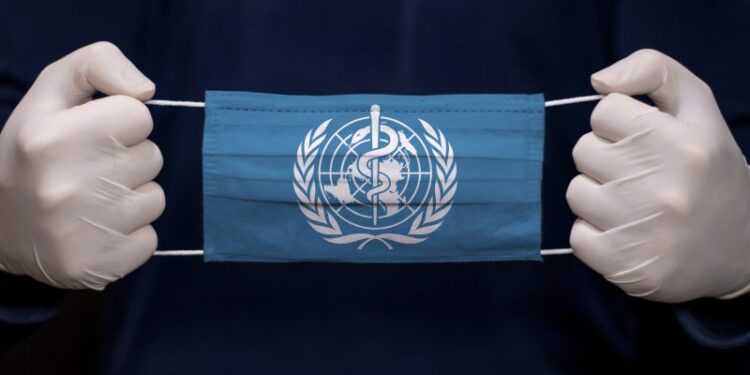by Will Jones, Daily Sceptic:

For two years, the 196 States Parties to the 2005 International Health Regulations (IHR) – composed of 194 Member States of the World Health Organisation (WHO), and Liechtenstein and the Vatican – have been submitting and discussing proposed amendments to update this agreement. Introduced in the 1960s, the IHR are intended to strengthen national capacities and improve coordination among countries in the event of a health emergency. Though a legally binding agreement under international law (i.e., a treaty), most of the provisions have always been voluntary.
TRUTH LIVES on at https://sgtreport.tv/
The draft of the IHR amendments and an accompanying draft Pandemic Agreement are both still under negotiation a month short of the intended vote at the World Health Assembly (WHA) in late May. Together, they reflect a sea-change in international public health over the past two decades. They aim to further centralise control of public health policy within WHO and base response to disease outbreaks on a heavily commoditised approach, rather than WHO’s prior emphasis of building resilience to disease through nutrition, sanitation and strengthened community-based health care.
The changing public health environment
Public health’s metamorphosis responds to the increasingly directive nature of WHO’s funding and an increasing participation of the private sector in that funding. Together with a growth of commodity-based public-private partnerships including Gavi (for vaccines) and CEPI (vaccines for pandemics), this has been heavily directed by powerful privately-owned foundations with strong connections to Pharma who shape the work of these organisations through direct funding and through influence brought upon countries. This became particularly prominent during the response to COVID-19, in which prior WHO guidance was abandoned in favour of more directive and community-wide measures including mass workplace closures and mandated vaccination. The resultant concentration of wealth within private and corporate sponsors of WHO, and increasing impoverishment and indebtedness of countries and populations, both set a precedent for such approaches and left the world more vulnerable to their imposition.
Implications of the new draft
In understanding the apparent reversals of some proposals amending the IHR in the latest draft, it is important to understand that the COVID-19 response demonstrated great success in imposing this new outbreak response paradigm under the current voluntary nature of the IHR. Pharmaceutical corporations successfully sealed highly lucrative contracts directly with states, including public funding for R&D and liability-free advance purchase agreements. This was supported with heavy sponsorship of media, health, regulatory and political sectors, enabling both the high level of compliance and the stifling of dissent. Centralising more proscriptive powers within WHO to repeat this business approach under a legally binding agreement would simplify future repetition, but also introduces an element of the unknown into a system already proven to work. These aspects of the previous drafts also presented an obvious focus for public opposition. Pharma has been aware of this reality during the negotiating process.
The latest version of the IHR amendments released on April 16th thus removes wording that would involve member states “undertaking” to follow any future recommendation from the Director General (DG) when he or she declares a pandemic or other Public Health Emergency of International Concern (PHEIC) (former New Article 13A). They now remain as “non-binding” recommendations. The shortened review time that passed in rather ad hoc fashion by the 2022 World Health Assembly is also being scrapped, returning to an 18-month period within which countries can reject their participation in the new IHR amendments or make reservations to these. These changes are sane, conform with the WHO Constitution and reflect concerns within country delegations regarding overreach. Otherwise, the intent of the draft, and how it is likely to play out, is essentially unchanged. The World Bank, IMF and G20 have signalled an expectation that the overall plan will proceed, and rising national indebtedness further increases powers to coerce this.
States are still expected to manage dissenting opinion, and together with the accompanying Pandemic Agreement, WHO and its partners continue to set up a highly dangerous complex (from a public health, equity and human rights viewpoint) involving a massive and expensive surveillance system to identify natural viral variants, a requirement for rapid notification by countries, passage of samples by WHO to pharmaceutical manufacturers of their choice, a 100-day mRNA vaccine delivery bypassing normal regulatory and safety trials, and then a mass-vaccination-based response that will, as seen in the COVID-19 response, be pitched as a way to get back to normal. This can still be invoked by the DG alone, simply on his or her perception of a threat rather than actual harm. The pharmaceutical companies will be supported by public funds (see discussion on the Pandemic Agreement) and receive liability-protected profits.
An unfit and unready document
This system will be overseen by WHO, despite being a beneficiary of pharma funding, who in turn will be the major financial beneficiaries of the pandemic response. The DG personally selects the committee members who may advise and oversee this process (rather than the member states who are supposed to ultimately be in charge). WHO receives funding for its emergency agenda from the same organisations and private investors who stand to benefit. The conflicts of interest and vulnerabilities to corruption in this scheme are obvious. A whole international bureaucracy is already being put in place for this, whose sole reason for existence is to determine that viral variants and minor outbreaks, a natural part of existence, are a threat requiring a specific response that they must then implement. The current DG declared a global emergency over Monkeypox, after just five deaths in a clear and relatively restricted demographic group.




